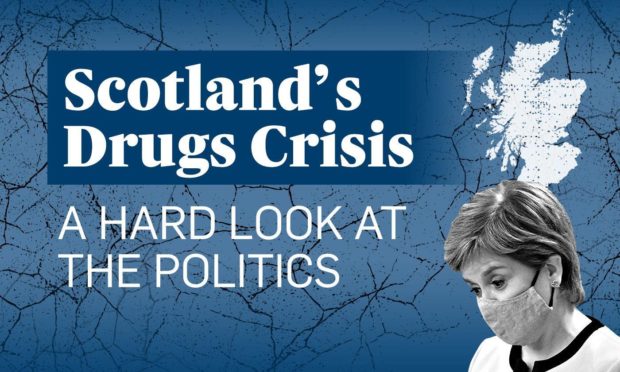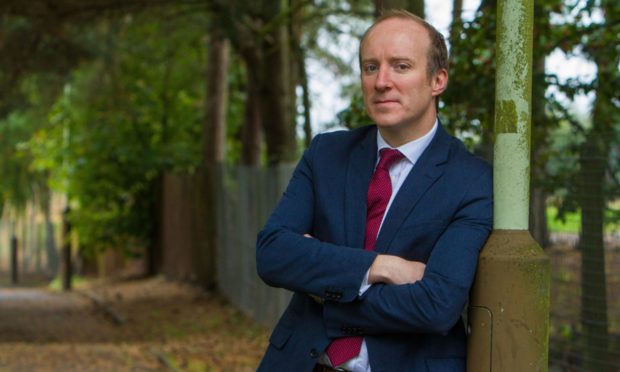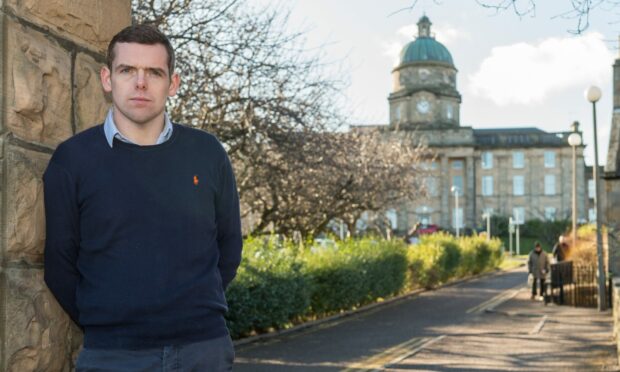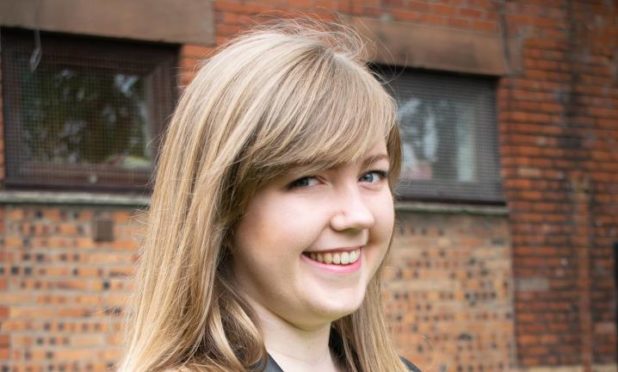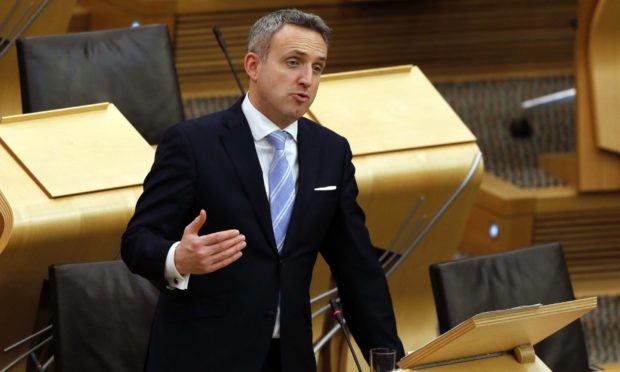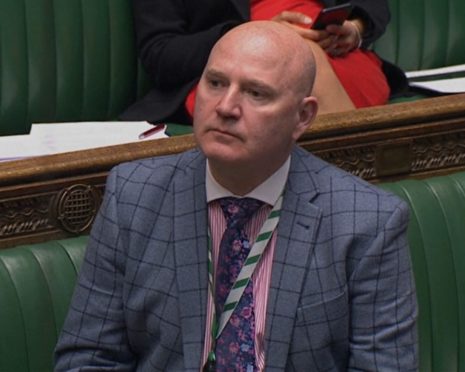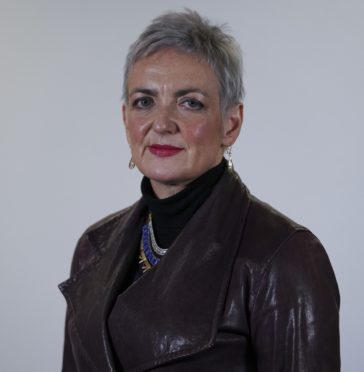The SNP Government was too slow to react, unwilling to listen to experts and risks making the drugs death crisis worse by rolling back counter measures, opposition parties have claimed.
Figures released on Friday confirmed Scotland again having the highest rate of drugs death in Europe, after another 1,339 people died of substance related causes.
The SNP’s opponents warned the crisis risked “spiralling out of control” and was a “scar on the conscience of this Scottish Government
The Scottish Conservatives have called on all Holyrood parties to support their Right to Recovery Bill, while the Scottish Greens have said both Westminster and Holyrood should change their policy on “the war on drugs“.
Scottish Labour said cuts to alcohol and drug addiction services since 2014 had caused the “deaths of thousands”.
Scotland’s rate of death is three times higher than the rest of the UK.
People from deprived areas of the country are 18 times more likely to die of drugs-related abuse than more prosperous parts, figures published by the National Records of Scotland (NRS) show.
Benzodiazepine, commonly referred to as “street-benzos” was present in more than 72% of recorded drugs deaths in Scotland.
In Dundee, that figure stood at more than 82%, one of the highest in the country.
Dundee recorded fewer drugs deaths in 2020 than in 2019, but on a four-year average still has the highest rate in the country.
Glasgow recorded the highest rate of drugs death in 2020, at 45.8 per 100,000 people.
The government’s drug policy minister Angela Constance said the latest figures were “heart-breaking” and promised to spend £100 million on improving residential rehabilitation, as part of a wider £250 million pledged for the crisis.
‘None of this was inevitable’
Dundee-based North East Labour MSP Michael Marra warned treatments brought in during the coronavirus crisis which may have helped Dundee’s figures were already being rolled back by the government.
He said: “These figures are horrific and that horror only grows deeper year by year by year. Every one of these lost souls leaves behind bereft families and friends. Their pain today is palpable.
“Scotland’s epidemic long since unhooked itself from comparable countries across Europe. We stand alone as a global case study in political and policy failure.
“We are one of the richest counties in the world yet the depth of our inequality is vast and growing.
“The most deprived are 18 more times likely to die from drugs as the better off.
“That is moral collapse and it is the same health inequalities that lie beneath our shocking record on Covid-19.
“None of this was or is inevitable.
“Services were cut despite warnings to the SNP government and lives are being lost in their thousands.”
He added: “Dundee’s death figures remain among the worst in the world. Any downturn in deaths must be continued year on year. Covid has resulted in some positive service changes which must be sustained and deepened.
“There are worrying signs that things like multi-day treatment are already being rolled back across the country. The challenge of service changes is profound and must be led intelligently and with an urgency that often eludes our institutions.
“I welcome the shift to quarterly figures having called for an overhaul of our use of data to evaluate policy in debate with the Drug Policy Minister in Parliament.
“If we are to understand what is happening in streets and in homes and if we are to assess what is working or not then real-time data is essential.”
Broken system
Scottish Conservative Leader Douglas Ross said: “These latest statistics are horrifying and heart-breaking. Behind every number is a lost loved one and a broken family.
“These shocking figures alone cannot capture the agony, pain and devastation that the drugs crisis is causing in communities across Scotland.
“The drugs crisis is our national shame. It is a stain on Scotland that so many of our most vulnerable people have been left without hope, crushed by a system that is thoroughly broken.
“This is not a day for political posturing but it is a simple fact that the government’s small steps are not cutting it. The crisis is getting worse and spiralling out of control.
“We need a united national effort to make the drastic changes necessary to overhaul the broken system.
“The Scottish Conservatives are bringing forward a Right to Recovery Bill to guarantee in law that everyone who needs treatment can get it.
“This proposal has the backing of frontline groups and experts across the political spectrum. SNP MSPs are reportedly on board privately. We only need the government to wake up, stop stalling and support it.
“The Scottish Parliament passed Covid laws in three days. We can introduce a Right to Recovery law swiftly if we adopt a similar sense of urgency.
“Overnight, we won’t end this crisis. But we can start on the right path today and take the necessary action now, if the government throws their weight behind this proposal.”
UK and Scottish approach must change
Scottish Greens health and social care spokesperson Gillian Mackay MSP said: “These tragic figures are yet another reminder of the devastating impact of drug misuse has on communities in Scotland. Every single one of these deaths is a preventable tragedy.
“The approach to drugs, pursued by both the UK and Scottish governments, must change. The war on drugs has demonstrably failed, it’s long past time we treated this crisis as the public health emergency that it is. It is time for an approach which focuses on restoring people’s dignity and treating their addiction, rather than criminalising them.
“While long term plans are now being developed to tackle this crisis, they come far too late for many. And for those in crisis now, they need to see urgent action, not more empty words.”
‘Scar on government’s conscience’
Scottish Liberal Democrat health spokesperson Alex Cole-Hamilton MSP said: “This will be a terribly hard day for all those who lost a loved one last year. Each and every life lost is a tragedy.
“Every drug death is preventable. However, that task became ten times harder when SNP ministers avoided the subject ahead of the independence referendum, as that justice secretary admitted, and then cut the budget for critical prevention services by 22%.
“Help and expertise that people relied upon was needlessly surrendered when it should have been expanded.
“It was Nicola Sturgeon’s choice to ignore this unfolding epidemic. Issuing apologies now is too late for thousands of people. The victims of drugs and their families were failed. It is a scar on the conscience of this Scottish Government.”
‘No less serious than Covid’
Neale Hanvey, Alba MP for Kirkcaldy and Cowdenbeath said: “This is a public-health crisis no less serious than the Covid pandemic.
“Between 2010 and 2020, there were 9,089 drug-related deaths in Scotland, that compares to 7,842 people who have died from Covid. But while Covid is treated with the utmost seriousness that the pandemic demands, we’ve been much slower to act on the drugs crisis.
“If it was yuppies in Glasgow Kelvin that were impacted, it’s hard to believe that the Scottish Government would have let this crisis fester.
“Of course, it is the UK government that refuses to entertain safe consumption rooms, decriminalisation, or frankly any evidence-based public health approach to drugs. And it is the UK government that dismisses Scottish requests that powers be devolved to Holyrood so we can chart a different path.
“But the blame cannot be placed solely at Westminster’s door. It is time for the Scottish Government to stop playing the ‘blame game’ and to meet its responsibilities. We need much more investment in rehabilitation, a faster and wider roll out of naloxone and serious efforts to address poverty and inequality that are the roots of this crisis.
“Users, their families, communities and frankly the whole of Scotland deserve much better.”
Quarterly data release
Drug policy minister Angela Constance said: “Once again, the statistics on drug-related deaths are heart-breaking. I want to offer my sincere condolences to everyone who has lost a loved one through drug use.
“We need to gather as much information as we can about drug use in Scotland and to that end, data on suspected drug deaths will be published quarterly from this September. This will ensure we can react more quickly and effectively to this crisis and identify any emerging trends.
“We are working hard to get more people into the treatment that works for them as quickly as possible. Without treatment, there is little hope of recovery so we are funding as many community and third sector initiatives as we can so that individuals have the widest possible choice and can opt for the support which suits them and their family.
“Of the £250 million announced over the next five years, £100 million will go on improving the provision of residential rehabilitation and I will update Parliament on progress in this area after the summer recess.
“As I have said before, I am determined that every penny of this additional funding will make a difference to all those affected by drug use in Scotland.”
